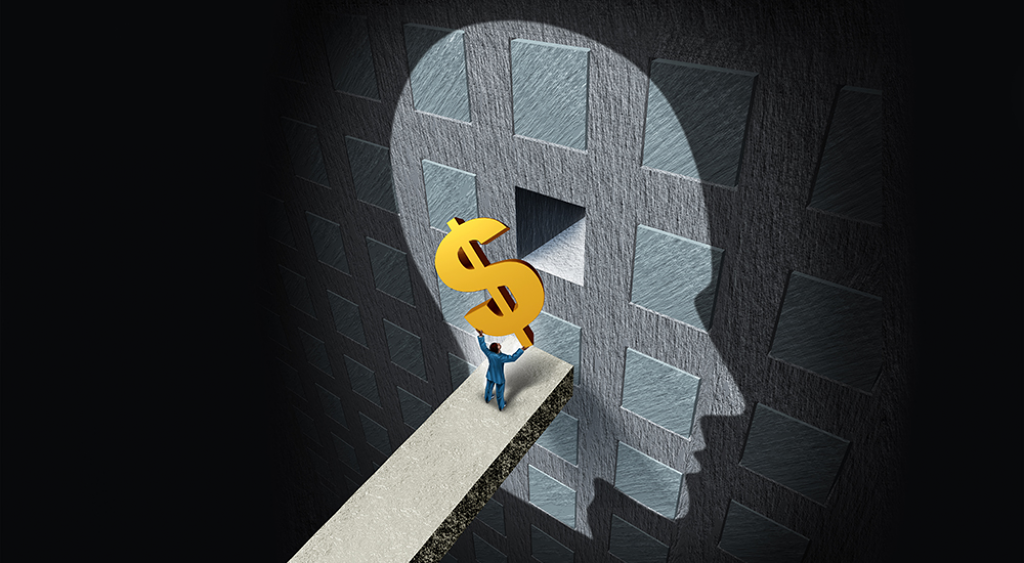Relationship Between Mental Health and Money

- Your mental health can be damaged by worrying about money.
- Your finances are likely to suffer when you experience mental illness.
- Good habits are a strong foundation for combating mental and financial ill-health.
You’ve probably heard the phrase, “If you don’t have your health, you don’t have anything.” The quote is not just a nice thing to say but a truism that applies to your mental, physical, and emotional health. While all components of your health are important, your mental health can greatly impact others.
It is essential to maintain your mental health, and your financial well-being is a key role player in doing so. We first need to understand mental health to understand why this is the case and the relationship between money and stress.
What is mental health?
Mental health is how well off you are emotionally, psychologically, and socially. That means that mental health covers many issues that could be impacting your daily life. Some examples of those issues include your overall positive outlook and the following abilities:
- To control your emotions
- To think clearly
- To perceive the world properly
- To interact productively with others
Each of these abilities depends on mental health. However, that doesn’t mean that you are either mentally healthy or not. In fact, you can be in perfect mental health in some ways and experience debilitating mental illness in others. You can also fluctuate daily on how mentally healthy you are.

The more you stay in a healthy mental space, the better off your life will be. Therefore, it is important to learn how to avoid things within your control that hurt your mental health.
Stress hurts your mental health.
Stress is something we talk about constantly but don’t necessarily understand. For example, most people don’t know that stress is significant for your survival. When something stresses you out, it creates the “fight or flight” response, which means that stress is what keeps us alive in dangerous situations.
We are designed to experience and need a little bit of stress, but the problem is that we’ve created a world that causes a lot of stress. As you experience prolonged stress, your body starts to wear down because it is running too hard. It would be like driving a car at 60 miles per hour in low gear for an extended period of time. The car can do it, but things start to breakfast.

The most delicate parts of a machine start to break first under stress, and for humans, that is the brain. When the brain breaks, everything else starts to fail soon after. Issues with our mental health add a significant amount of stress on our body and brain, and one of the top constant stressors in this world is money.
Financial instability can cause stress.
Money has come to symbolize our survival. When you have enough money, you can survive. When you don’t have enough money, you die.
We all know that money can be incredibly stressful. Whether from crushing debt, insufficient income to cover bills or meet needs, unexpected expenses, accidents, or illness, not having enough money is enough to keep you up at night.
The longer you stay in a state of financial stress, the worse your mental health will become. It can lead to depression, anxiety, or a complete breakdown due to your sensitive brain wearing out from going full speed.
However, it is not a one-way street. Poor mental health can also affect your financial situation.
Mental health issues can hurt your finances.
Like your physical health, your mental health impacts all parts of your life. But how does poor mental health affect your finances? A few ways poor mental health can hurt your finances are as follows:
- Causing you to impulse buy in an attempt to feel better and, in turn, break your budget.
- Making you less productive at work and possibly reducing your salary.
- It leads you to avoid existing problems, like debt, which only makes them worse.
- Reducing your self-esteem, which sadly is too often connected to your money.
- Making it harder to plan ahead, which hurts your future self financially.
In short, when you’re experiencing mental illness, it can harm good financial decision-making. As a result, it worsens your money situation, which can deepen your mental illness. Overall, it is a vicious cycle.
If you are experiencing the effects of mental illness on your financial well-being, or the effects of poor finances on your mental health, you need to take steps to stop the downward spiral.
How to improve your mental health and financial well-being.
If you are on a downward spiral, it can feel like nothing will make you stop. However, the best action is to try to slow yourself down. In doing so, you’ll eventually get momentum in the other direction that can help you rise out of the mental illness and financial stress you are experiencing.
Form Good, Regular Habits
The first thing to do is to start good and regular habits. It may sound cliché, but there is wisdom in clichés. Your new habits could include waking up at the same time every day, eating regular and well-balanced meals, exercising, and other things that allow you to enjoy life. Remember that consistency is good for your mental health.

By forming these basic habits, your mental health will start to improve, even if you have more mental health issues that need to be addressed by a professional. Once your mental health starts to improve, you can begin to improve your financial well-being.
Improve Your Financial State
The second thing to do is put the processes in place to improve your financial well-being and how you manage money. Again, consistency is important here as well. These processes include tracking your spending, following a budget so you can start saving money, setting a regular time to review your finances, and even using verbal affirmations to improve your money mindset.
These basic financial processes will lay the foundation for smart financial decision-making. From there, you can identify what area you need more support. Most importantly, once the foundation is laid, you can start to improve your economic well-being and reduce the constant financial stress on your mental health. Financial freedom is the goal.
The Money Wrap-Up
The suggestions given are not a catch-all fix for every financial or mental problem, but they are a good place to start.
If mental illness is still dogging you, find a mental health professional to help you get the rest of the way there. If finances are still a struggle that causes stress, find a competent financial coach to help you get on track.
Speaking with a licensed professional is recommended. With the right help, you can overcome mental health and financial challenges to live your best life.